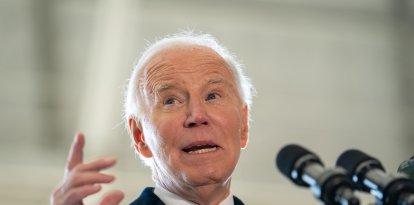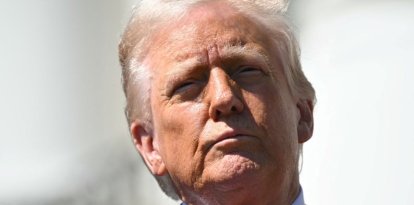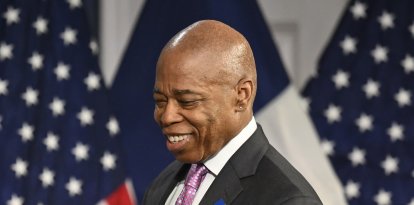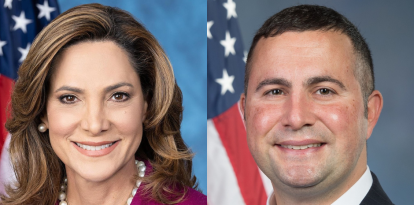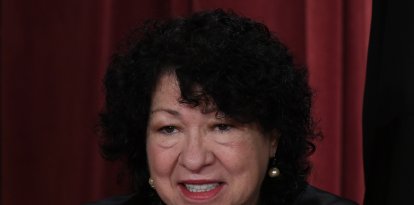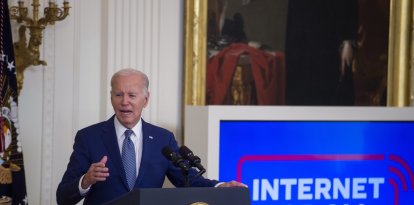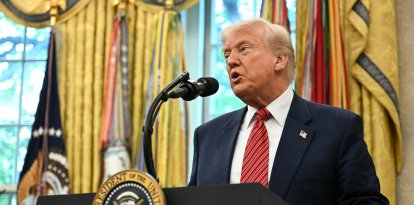The New York attorney general's office will move forward with the case against Donald Trump for civil fraud
The president-elect had asked Attorney General Letitia James to follow in Jack Smith's footsteps and drop the lawsuit against him, for which he could have to pay over $454 million.
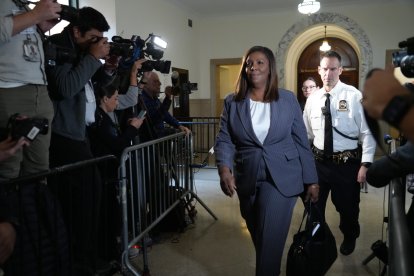
Letitia James, New York Attorney General
The New York attorney general's office said Tuesday it will not honor Donald Trump's request to dismiss a civil fraud case against him. Judith Vale, deputy attorney general, sent a letter notifying her decision to John Sauer, the Republican's lawyer and his nominee for U.S. attorney general.
In late November, Sauer wrote to Attorney General Letitia James asking her to dismiss the case to "heal" the wounds of political polarization. "President Trump has called for our Nation’s partisan strife to end, and for the contending factions to join forces for the greater good of the country," the attorney noted, as reported by VOZ. "This call for unity extends to the legal onslaught against him and his family that permeated the most recent election cycle."
For that case, Trump received a $454 million conviction. His legal team appealed and is awaiting the outcome. The judge found him guilty of conspiring to inflate his wealth in order to obtain tax and insurance benefits. In total, all the defendants, including Donald Trump JR and Eric Trump, accumulated a penalty of more than $464 million.
"Mr. Trump’s upcoming inauguration as the next President of the United States has no bearing on the pendency of defendants’ appeal in this action," prosecutor Vale wrote. She also denied that the lawsuit was in any way politically motivated: "This civil enforcement action was filed following a multiyear investigation by the Office, and multiple courts have rejected claims that the investigation or action were brought in anything other than good faith."
Vale referenced presidential immunity, ruling out that it covered the actions tried in the case, "The judgment thus does not concern any conduct related to Mr. Trump’s first term as President." In a July ruling, the Supreme Court ruled that a president could not be tried for acts connected to his official activity. However, Vale pointed out that "Presidents do not have immunity from civil lawsuits arising from unofficial conduct, and such lawsuits may proceed while the President is in office.”
She also argued that the appeal process will not hinder Trump's second term, as it is in its final stages and will be carried out by his lawyers, and distinguished the case from others that prosecutors decided to drop after the Republican's victory in November, claiming that this civil case had little to do with the criminal cases against the president-elect.
After the election, special prosecutor Jack Smith asked that his two cases against the Republican be dismissed. The president-elect's judicial outlook was becoming clearer. With this response from New York, it is unknown what will happen with the conviction in the Stormy Daniels case and in Georgia, with the election interference case led by Fani Willis.
James came to a different conclusion. Days after the election, she promised to wage war on Trump: "We did not expect this result, but we are prepared to respond to this result. And my office has been preparing for several months because we've been here before."
RECOMMENDATION
